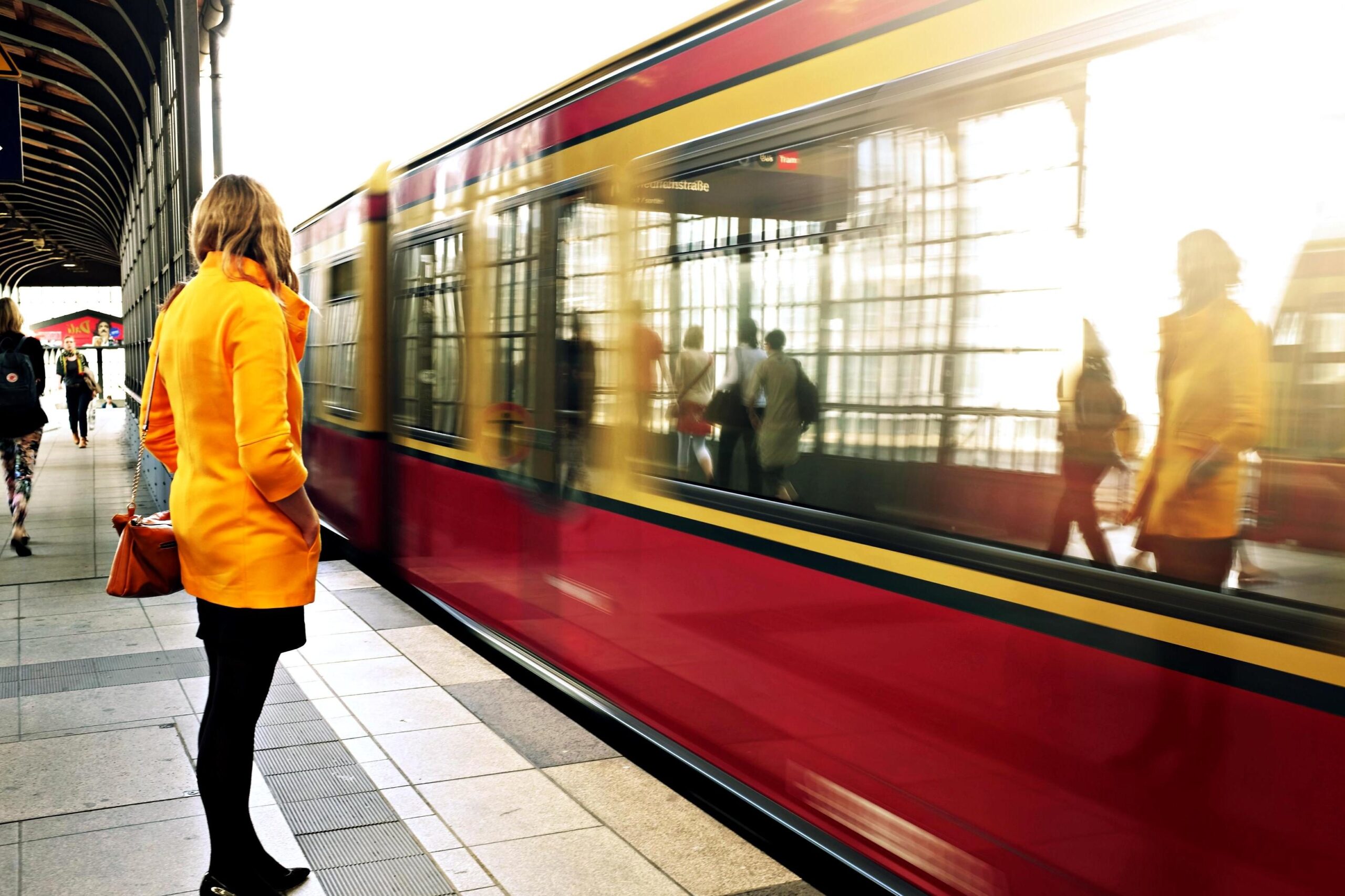The webinar Ensuring the Inclusivity of Sustainable Travel in Europe: Youth Perspectives was held by Generation Climate Europe (GCE) on 30 May 2022. Three members of GCE’s clean mobility working group, Marte van der Graaf, Ruben Sansom, and Morgane Mayoux, moderated this one-hour Zoom dialogue. We discussed the opportunities for European policies to support sustainable as well as affordable transport, particularly for young people. GCE’s recommendations can be found in our 2022 clean mobility position paper.
During this event, European policymakers joined us to bring their perspectives and answer participants’ questions. Elisabeth Kotthaus works in the Directorate General for Mobility and Transport within the European Commission. Her work is particularly relevant regarding inclusivity as Head of Unit for Social Affairs, Passenger Rights and Equal Opportunities. Further, Anna Deparmay-Grunenberg and Malte Gallée encourage sustainable transport as Members of the European Parliament (MEPs) representing the Greens.
Sterring sustainability and inclusivity towards the same road
Ruben Sansom opened the webinar by highlighting the necessity to combine sustainability and inclusivity when considering transport policies. He stressed that young Europeans can face high prices when attempting to travel sustainably and further efforts are needed from the European Union (EU) to incentivise sustainable transport options. Accordingly, he explained that GCE promotes a holistic approach to sustainability, connecting environmental discussions with other topics such as inclusivity.
To recognise the inclusivity challenges facing sustainable European transport, participants were divided into breakout rooms to compare travel options between each other’s locations. This exercise demonstrated that depending on distances, sustainable movement may prove difficult as travelling by bus can be long and unpractical if transfers are necessary. Using trains might also require using different online platforms to book a trip and it is generally more expensive than using a plane.
Following this assessment, our guest speakers were invited to present their work and ambitions to ensure the inclusivity of sustainable travel in Europe.
Viewpoints from European policymakers
Malte Gallée discussed the objective of setting adequate prices for public transport. He argued that the external costs from the aviation sector should be better reflected in flight prices which are currently too low. Pricing the environmental damages of aviation could also be a manner to invest these new cashflows into train networks.
Anna Deparnay-Grunenberg mentioned examples of good practices at the national level with low prices for people under 26 from SNCF in France and the recent €9 tickets from the Deutsche Bahn in Germany. The MEP explained that the EU should prioritise the simplification of booking and travelling information access with Europe-wide ticketing.
Elisabeth Kotthaus evoked the European Commission’s aim to incentivise rail transport for young people, notably with the Discover EU project and its 35 000 Interrail tickets. Additionally, young people are needed in transport professions to bring their views. Elisabeth Kotthaus mentioned the efforts from the EU to promote this sector and to defend passenger rights for people with disabilities.
Short-term roadmap
The invited policymakers discussed concrete objectives to focus on during the upcoming months. Elisabeth Kotthaus stressed the importance of stronger passenger rights with increased rights for multimodal transport. Long-distance European travel would then be facilitated. Malte Gallée also suggested ideas to ameliorate everyday mobility, such as allowing cyclists to pedal next to each other.
Anna Deparnay-Grunenberg highlighted the role of young Europeans to voice how sustainable transport should be developed and we wanted to debate what concrete practices should be encouraged.
Meaningfully engage young people in transport policies
Malte Gallée declared that people need to be involved at a young age with sustainable mobility habits and Anna Deparnay-Grunenberg insisted on the opportunities for actions at any scale, whether it is as students in school and university, or as employees.
Ultimately, Elisabeth Kotthaus emphasised the steps taken by the EU to promote transport professions and engage with the interests of young Europeans, as shown by the Women in Transport – EU Platform for Change. The European transport sector comprises an ageing workforce and it is overrepresented by men, with only 22% of women.
The voices of young Europeans are thus crucial to bridge the environmental and social challenges we face to make mobility more sustainable.

